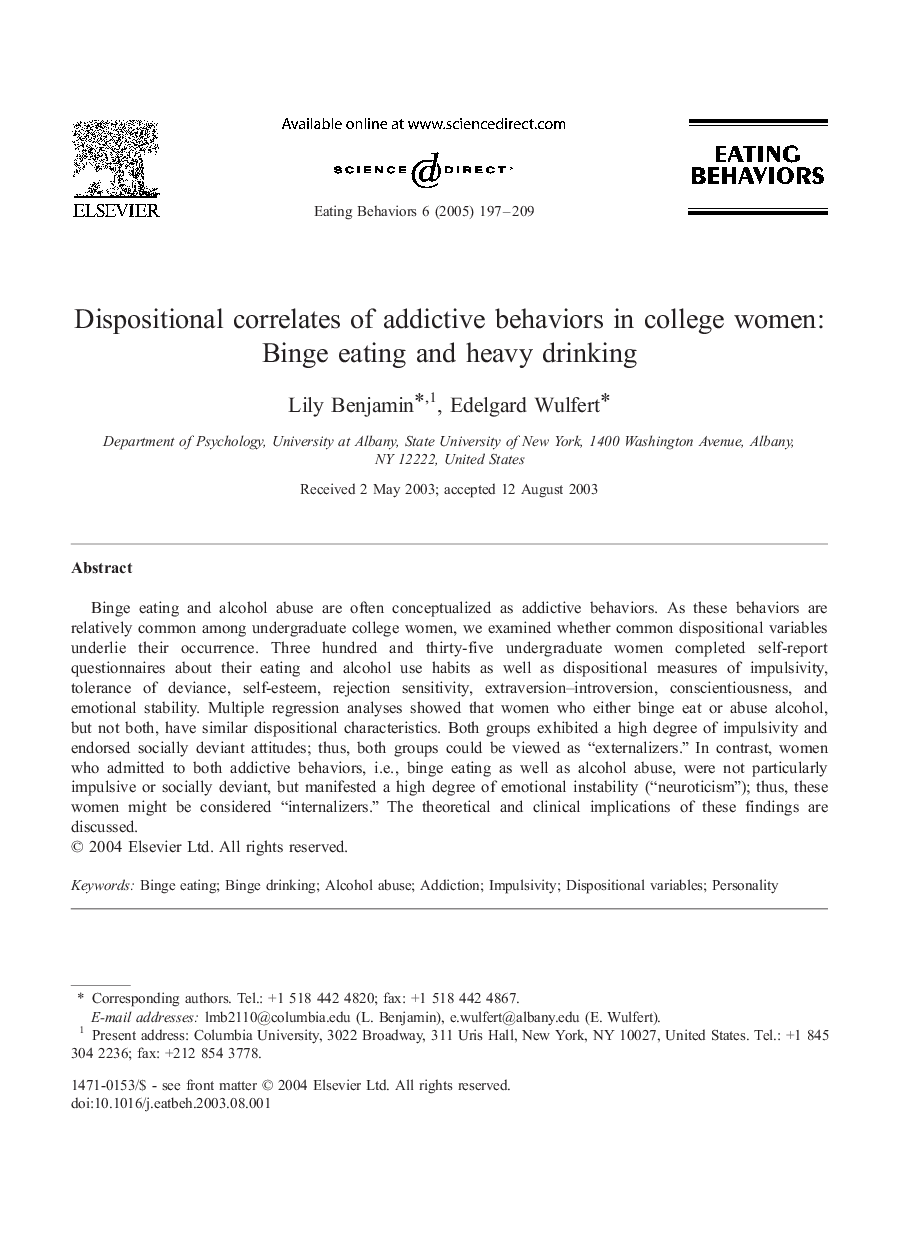| Article ID | Journal | Published Year | Pages | File Type |
|---|---|---|---|---|
| 10446901 | Eating Behaviors | 2005 | 13 Pages |
Abstract
Binge eating and alcohol abuse are often conceptualized as addictive behaviors. As these behaviors are relatively common among undergraduate college women, we examined whether common dispositional variables underlie their occurrence. Three hundred and thirty-five undergraduate women completed self-report questionnaires about their eating and alcohol use habits as well as dispositional measures of impulsivity, tolerance of deviance, self-esteem, rejection sensitivity, extraversion-introversion, conscientiousness, and emotional stability. Multiple regression analyses showed that women who either binge eat or abuse alcohol, but not both, have similar dispositional characteristics. Both groups exhibited a high degree of impulsivity and endorsed socially deviant attitudes; thus, both groups could be viewed as “externalizers.” In contrast, women who admitted to both addictive behaviors, i.e., binge eating as well as alcohol abuse, were not particularly impulsive or socially deviant, but manifested a high degree of emotional instability (“neuroticism”); thus, these women might be considered “internalizers.” The theoretical and clinical implications of these findings are discussed.
Related Topics
Life Sciences
Neuroscience
Behavioral Neuroscience
Authors
Lily Benjamin, Edelgard Wulfert,
